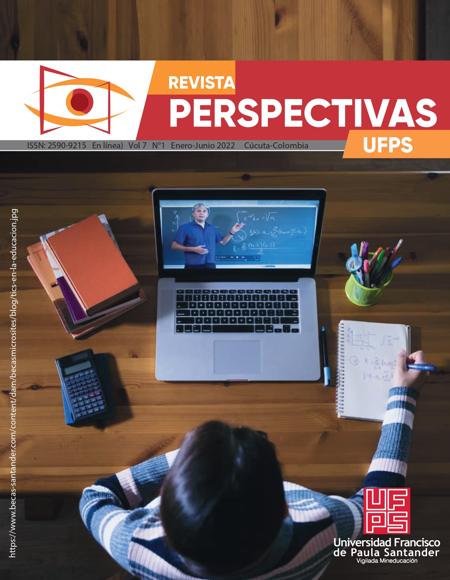Theoretical perspectives on the teaching of World Languages in the United States
Theoretical perspectives on the teaching of World Languages in the United States
Contenido principal del artículo
La importancia del bilingüismo en la globalización, en la adopción de políticas internacionales de educación y en las habilidades exigidas al ciudadano del siglo XXI, demanda que los profesores de segundas lenguas constantemente reflexionen sobre las prácticas más efectivas para atender las necesidades de los estudiantes pos-pandemia. ¿Cuáles son los métodos más efectivos para la enseñanza de los idiomas del mundo? ¿Cómo evolucionar del aprendizaje pasivo -que no ha dado resultados comunicativos- a un aprendizaje activo con un enfoque comunicativo y basado en situaciones reales? Las respuestas apuntan a la instrucción centrada en el estudiante, planes de estudio relevantes al entorno, uso sistemático de las TIC, y pedagogías activas que desarrollen las competencias del saber ser, hacer, aprender y convivir. Este artículo tiene como objetivo reflexionar sobre las metodologías de educación de las segundas lenguas; y la necesidad de incluir la lúdica y el aprendizaje basado en proyectos, dos metodologías de enseñanzas cooperativas que adquieren relevancia en la pos-pandemia como parte del apoyo social emocional de los estudiantes
Descargas
Datos de publicación
Perfil evaluadores/as N/D
Declaraciones de autoría
- Sociedad académica
- Universidad Francisco de Paula Santander
- Editorial
- Universidad Francisco de Paula Santander
Detalles del artículo
Bender, W. N. (2012). Project-based learning: differentiating instruction for the 21st century. Corwin Press. p. 23
Revista:
Muñoz-Repiso, A. G. V., & Gómez-Pablos, V. B. (2017). Aprendizaje Basado en Proyectos (ABP): evaluación desde la perspectiva de alumnos de Educación Primaria. Revista de Investigación Educativa, 35(1), pp. 113-131. DOI: https://doi.org/10.6018/rie.35.1.246811
Sánchez Cabrera, F. A. (2007). El Fleming, D. S. (2000). A Teacher's Guide to Project-Based Learning. Scarecrow Education, Attn: Sales Department, 15200 NBN Way, PO Box 191, Blue Ridge Summit, PA 17214.
Foreman, Joel. (2003).“Next Generation Educational Technology Versus the Lecture,” Educause Review. pp. 12-22. DOI: https://doi.org/10.1016/S0961-1290(03)80411-8
Mellenthin, C. (2018). Engaging & Powerful Techniques for the Treatment of Childhood. PESI.
Smilansky, S., & Shefatya, L. (1990) Facilitating play: A medium for promoting cognitive, socioemotional, and academic development in youngchildren. Gaithersburg, MD: Psychosocial & Educational Publications.
Trujillo, F. (2015). Aprendizaje basado en proyectos. Infantil, Primaria y Secundaria. Ministerio de Educación.
Sanuy, C. (1998) Enseñar a jugar. España: Marsiega.
docente frente al reto de motivar al alumno. Revista Iberoamericana Producción Académica y Gestión Educativa. https://doi.org/ISSN
Página Web:
Alrubail, R. (2015, January 4). Scaffolding Student Reflections + Sample Questions. Edutopia; George Lucas Educational Foundation. https://edut.to/3dqLopK
American Council of the Teaching of Foreign Language. (2021). Benefits of Language Learning ACTFL. Www.actfl.org. https://bit.ly/3NmeSFN
AVID. (2022). Support Student Reflection, Critique, and Revision in Project-Based Learning. AVID Open Access. https://bit.ly/3LjGhXf
Bogler, M. (2018). How do you teach 21st Century Skills? A Project Based Learning (PBL) Approach. https://bit.ly/3EsxdMv
Buck Institute for Education. (2021) “Collaboration Rubrics.” PBL Works.my.pblworks.org/node/11282.
CDC. (2019, February 20). Adolescence (15-17 years old). Centers for Disease
Control and Prevention. https://bit.ly/3xUwbXe
Collaborative Classroom. (2017). Lowering the Affective Filter for English Language Learners Facilitates Successful Language Acquisition. Center for the Collaborative Classroom. https://bit.ly/3uth4CX
Galeana, L. (2016). Aprendizaje basado en proyectos. Dra. Lourdes Galeana dela O. Universidad de Colima. https://bit.ly/31G1FEJ
Government of Northwest Territories. (2017). WHAT IS PLAY-BASED LEARNING? https://bit.ly/3NwXxu2
Grove, A. (2019). What Colleges Say About Their Second Language Requirements. ThoughtCo.
Hirsh-Pasek, K., Zosh, J. M., Golinkoff, R. M., Gray, J. H., Robb, M. B., & Kaufman, J. (2015). Putting Education in “Educational” Apps. Psychological Science in the Public Interest, 16(1), 3–34.https://doi.org/10.1177/1529100615569721 DOI: https://doi.org/10.1177/1529100615569721
Jensen, B., & Kimmons, R. (2021). Making Meaning in My Classroom. In edtechbooks.org. EdTech Books. https://edtechbooks.org/equitable_teaching
Kayımbaşıoğlu, D., Oktekin, B., & Hacı, H. (2016). Integration of Gamification Technology in Education. Procedia Computer Science, 102, pp. 668-676.
https://doi.org/10.1016/j.procs.2016.09.460 DOI: https://doi.org/10.1016/j.procs.2016.09.460
National Board. (2010). World Languages Standards Second Edition for Teachers of Students Ages 3-18+. bit.ly/3qxnsYu
Pandolpho, B. (2018, May 4). Putting Students in Charge of Their Learning. Edutopia; George Lucas Educational Foundation. https://edut.to/3owb5vo
Parker, J. L. (2020). Students’ Attitudes toward Project-Based Learning in an Intermediate Spanish Course. International Journal of Curriculum and Instruction, 12(1), 80–97. https://eric.ed.gov/?id=EJ1249547
Pham, V. P. H. (2021). The Effects of Collaborative Writing on Students’ Writing Fluency: An Efficient Framework for Collaborative Writing. SAGE Open, 11(1), 215824402199836. https://doi.org/10.1177/2158244021998363 DOI: https://doi.org/10.1177/2158244021998363
Plass, J. L., Homer, B. D., & Kinzer, C. K. (2015). Foundations of Game-Based Learning. Educational Psychologist, 50(4), 258–283. https://doi.org/10.1080/00461520.2015.1122533 DOI: https://doi.org/10.1080/00461520.2015.1122533
Rutgers University. (2020). “How Does Group Work Benefit Me? | Learning Centers.” Rlc.rutgers.edu rlc.rutgers.edu/node/469
Stagnitti, K., Bailey, A., Hudspeth Stevenson, E., Reynolds, E., & Kidd, E. (2016). An investigation into the effect of play-based instruction on the development of play skills and oral language. Journal of Early Childhood Research, 14(4), 389–406. https://doi.org/10.1177/1476718x15579741 DOI: https://doi.org/10.1177/1476718X15579741
U.S. Chamber of Commerce. (2021, January 15). The Benefits of International Trade. US Chamber. https://bit.ly/3tBoxAI
Usher, K. (2019, April 10). Differentiating by Offering Choices. Edutopia; George Lucas Educational Foundation. https://edut.to/3ItLn2g








